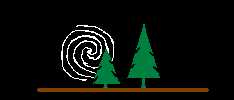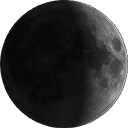Saturday, February 18 ; 6:30pm
Galaxy Quest Observatory
84 Vancycle Road, Lincolnville, ME 04849
Partial Directions: On Vancycle Road, shortly after the pavement changes to gravel, look on the left for the sign marking the entrance to Donkey Universe Farm. Park near the barn.
On Saturday morning, forecasts are for clear skies at tonight’s star party! Good thing, because this event is growing. CMAS will likely be hosting guests from the Penobscot Valley Star Gazers. We had a great time when they joined us at Galaxy Quest a few years back, so the tradition happily continues.
The playful shoot-out between antique and modern 60mm refractors has blossomed into a mini-Stellafane of member’s telescopes. Alongside the super-widefield 12” f/3 Dobsonian, Colin will also be bringing the super-narrow field, high magnification, 4” f/27 Shiefspiegler. This unobstructed reflector favorably compares with refractors, and mystifies newcomers with its seeming instance on showing a beautiful image of where it does not appear to be pointed. (We’ll explain that when you see it!) If Dwight is able to join us, he’ll be bringing his TeleVue 102 mm f/8.6 Doublet. TeleViews are comparably great to Takahashis, so we’ll be able to see what the finest optics bring to grab-and-go convenience.
Comet watchers, come see the comet’s true green brightness in the 18” Big Dob. It collects so much light that it shows the Orion Nebula’s pink color right in the eyepiece, so we’re betting it will brighten the green already visible in smaller instruments.
TO OUR NEW MEMBERS
At last week’s party at Brower Observatory, we learned that newcomers may not know what to expect. We will be outside, so it will be cold. The forecast with a light wind chill is for temperatures in the teens. Galaxy Quest has a heated control room for warming and a heated bathroom with running water. It will also be dark, so walk carefully. Galaxy Quest is in a field, and the area where we will be observing is plowed and level. Many people are surprised at how well they can actually see at night, after their eyes adapt, which takes about half an hour. Please refrain from using white lights, because even a moment’s flash un-does everyone’s night vision, with another half hour again needed for it to recover. During that time, less is visible in the eyepiece. All of this is ordinary for astronomers in winter. Dress warmly, step carefully, and warm yourself as needed to be happily drawn to the beautiful, dark skies overhead.






